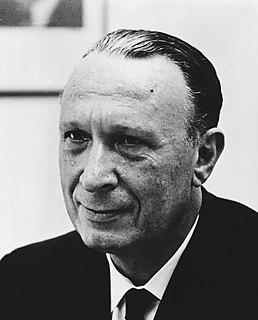A Quote by Dennis Gabor
Transmission of documents via telephone wires is possible in principle, but the apparatus required is so expensive that it will never become a practical proposition.
Related Quotes
The economic transmission of power without wires is of all-surpassing importance to man. By its means he will gain complete mastery of the air, the sea and the desert. It will enable him to dispense with the necessity of mining, pumping, transporting and burning fuel, and so do away with innumerable causes of sinful waste.
What will be required to increase the quality of life and health is a coming together of technology and values, based on a scientific guiding principle that people can agree on. Securing a healthy global future requires this guiding principle to preserve freedom of spirit yet be as provable as the laws of physics. A guiding principle that addresses the meaning of life and is compelling enough to generate social cohesion and behaviors that serve the greater whole. After thirty years of investigation and research, it has become clear to me that the answer lies within the human heart.
Federal transfers are not even a zero-sum proposition; they are a negative-sum proposition, leaking value at every step of the way, thanks to the costs of collecting federal tax dollars, then trickling them back out to the states' own costly bureaucracies via federal paper-pushers who write and oversee grant programs.
What decides the purpose of life is simply the programme of the pleasure principle. This principle dominates the operation of the mental apparatus from the start. There can be no doubt about its efficacy, and yet its programme is at loggerheads with the whole world, with the macrocosm as much as with the microcosm.
To make our position clearer, we may formulate it in another way. Let us call a proposition which records an actual or possible observation an experiential proposition. Then we may say that it is the mark of a genuine factual proposition, not that it should be equivalent to an experiential proposition, or any finite number of experiential propositions, but simply that some experiential propositions can be deduced from it in conjunction with certain other premises without being deducible from those other premises alone.



































